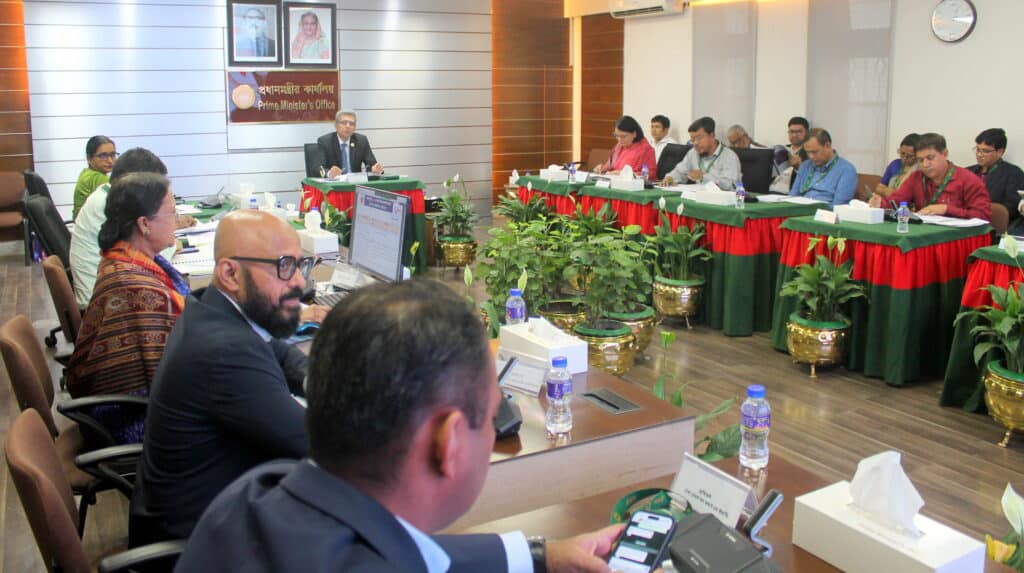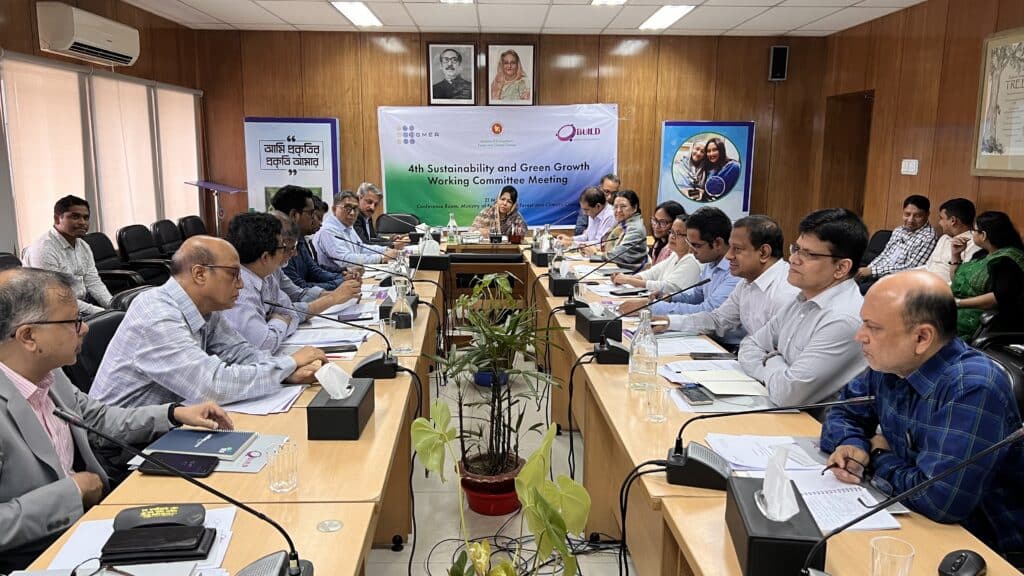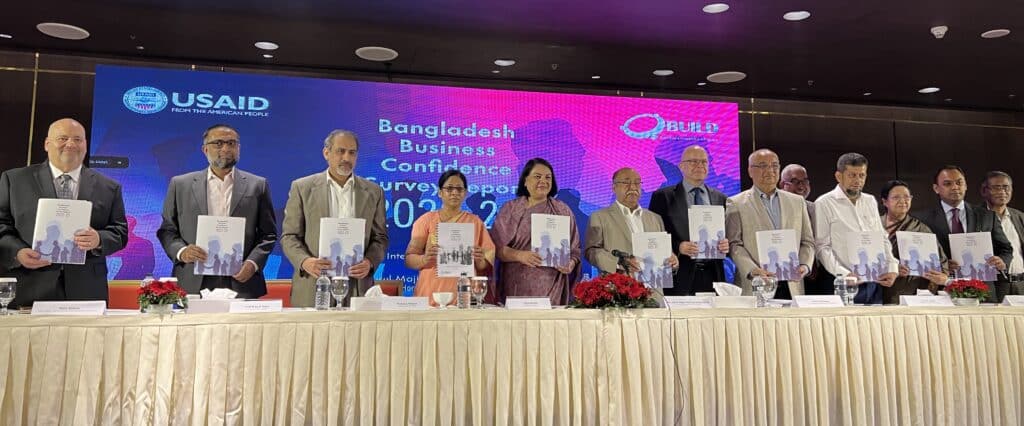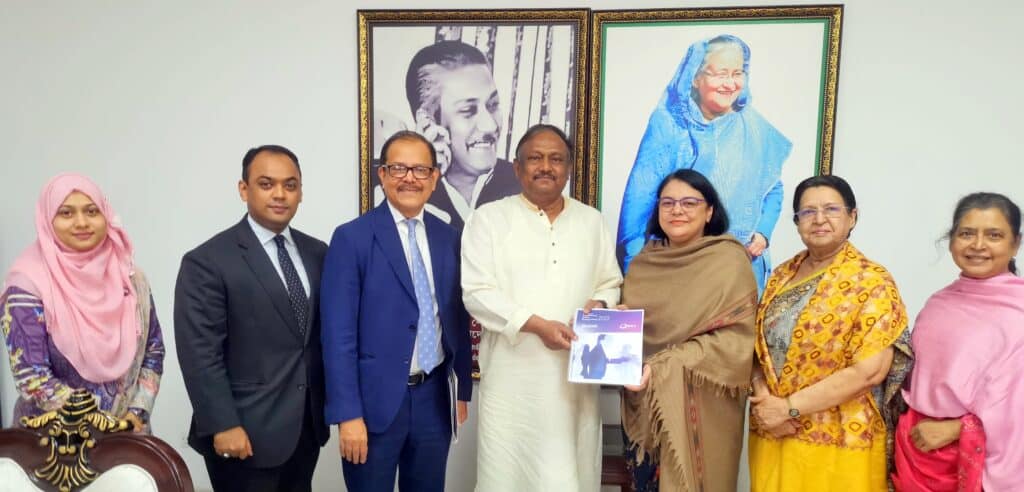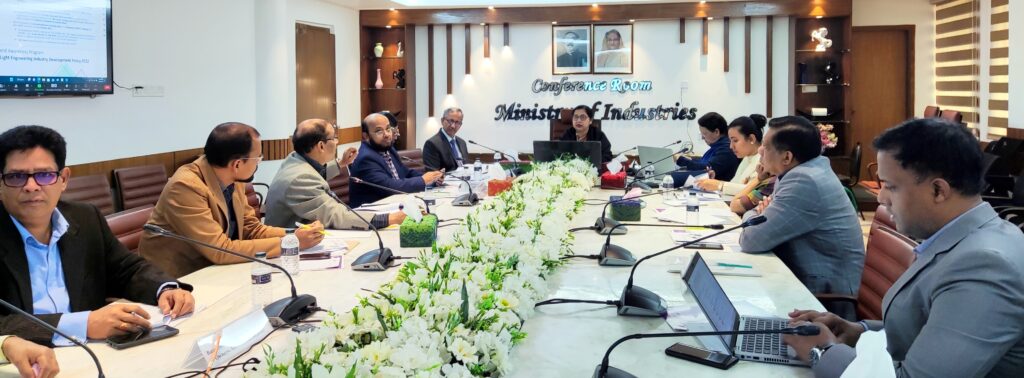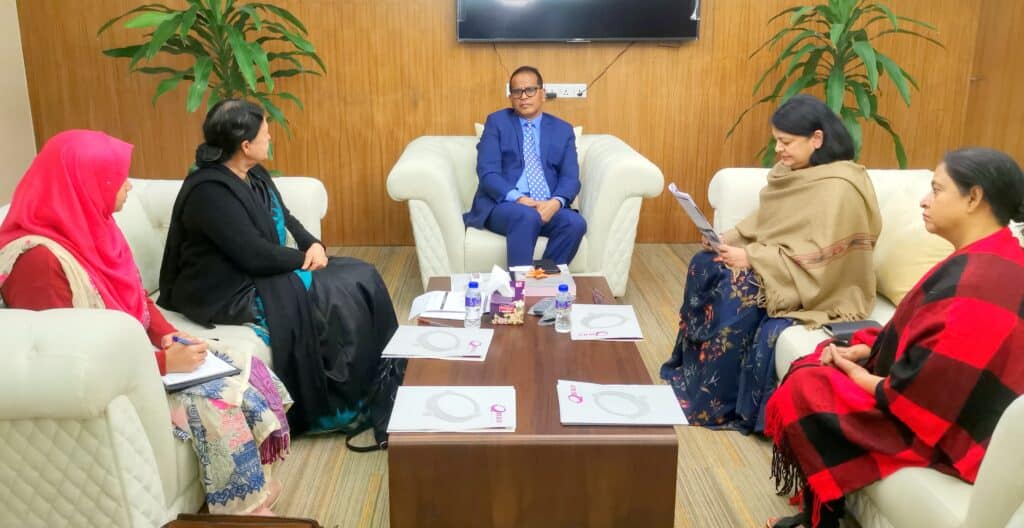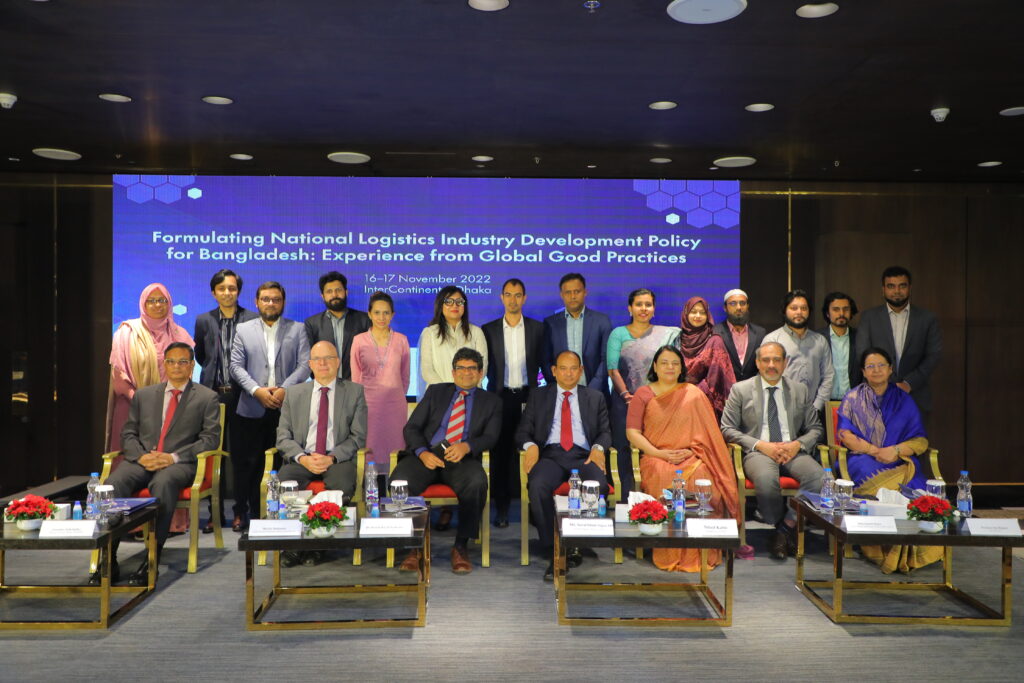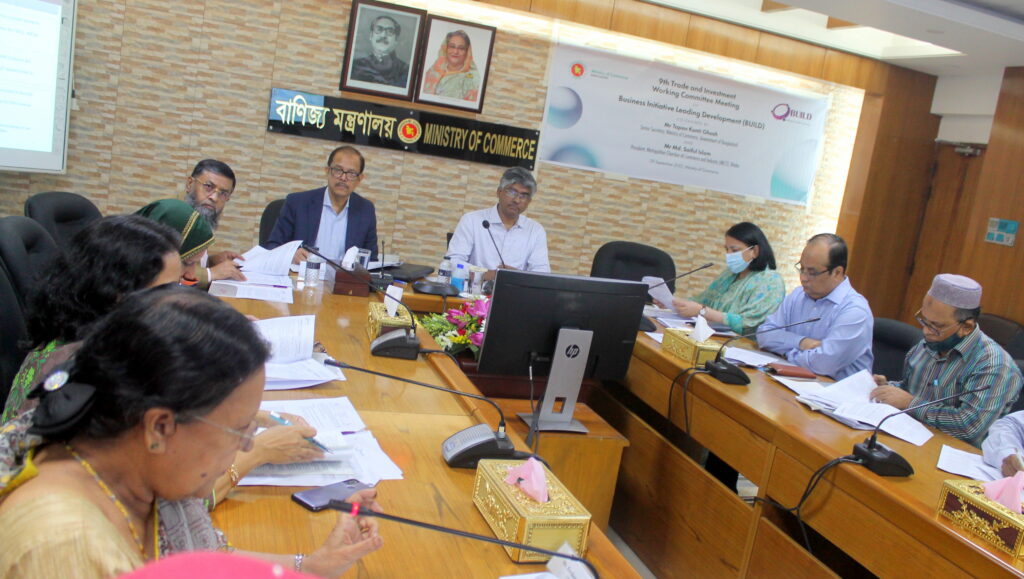To gather inputs from national and international experts for an integrated and efficient Logistics Industry Development Policy and to frame a holistic system both in terms of infrastructure and service development, a workshop on “Formulation of National Logistics Industry Development Policy for Bangladesh: Experience from Global Good Practices” was organised by the Ministry of Industries (MoI), Business Initiative Leading Development (BUILD), and the World Bank Group (WBG) at the InterContinental on 16-17 November 2022 in Dhaka. The workshop aimed to present good global practices in formulating the proposed National Logistics Industry Development Policy and gathering expert opinions from national and international sectoral specialists, stakeholders, public sector representatives, and development partners.
In the first session of the closing days on 17 November 2022, titled “Balancing Multimodal Transport System for Logistics Competitiveness” two keynotes were presented by A. B. M. Amin Ullah Nuri, Secretary of Road Transport and Highways Division, and Martha B. Lawrence, Global Lead of the Regional Connectivity and Logistics Knowledge Group at the World Bank while Md Mostafa Kamal, Secretary of the Ministry of Shipping graced the session as chair.
The Secretary of RTHD reported that initiatives must be taken to update and implement the National Integrated Multimodal Transport Policy 2013 by portraying dedicated development strategies for different modes of transportation addressing.
In her keynote, WB representative requested a comprehensive focus on logistics efficiency, quality of logistics, improvement of the logistics infrastructure, and regional connectivity while formulating the National Logistics Industry Development Policy to develop a balanced multimodal transport system.
The government has taken several mega projects by considering improving the logistics scenario as one of the most priority issues. However, without the complete automation of the Customs and NBR procedure, all the initiatives will fail. Harmonised coordination among the public, private, and development partners is the single key to reaching the multimodal logistics management system to a global height, pointed out by Md Mostafa Kamal, Secretary, Ministry of Shipping.
The government of India has invested 99,000 crore rupees through the Sagarmala PPD Model Project to ensure port-led economic growth by considering their potential coastal areas, informed by Abul Kasem Khan, Co-chair of LIDWC, BUILD. Policymakers should consider the global good practices and strategies of India, China, Singapore, Hong Kong, etc., to design the nation’s logistics policy and strategy. Necessary policy reforms must be ensured by removing the regulatory bottlenecks to attract domestic and foreign investment in the logistics sector. “National Forum for Formulating National Logistics Industry Development Policy” would be formed where LIDWC will provide research assistance with the support of World Bank Group, he added.
Md. Nurul Islam Sujan MP, Hon’ble Minister, Ministry of Railways, graced the workshop’s closing session as chief guest. There is no alternative to ensure transport cost efficiency without the modern railway system. Ongoing projects of the Ministry of Railways will connect Bangladesh to Trans-Asian Railway Network, leading to exploring new export markets with diversified products. To make Bangladesh a multimodal logistics hub of the South Asian region, the Ministry of Railways will extend all possible assistance in a coordinated manner, assured by the Hon’ble Railways Minister.
Chair of the closing session, Nihad Kabir, BUILD Chairperson highly appreciated the initiatives of the Ministry of Railways for taking several policy reforms and projects to improve the freight and passenger transportation management system in Bangladesh.
Enclosed are the press releases (in English and Bangla) for your kind consideration. Please feel free to contact us for any queries.

